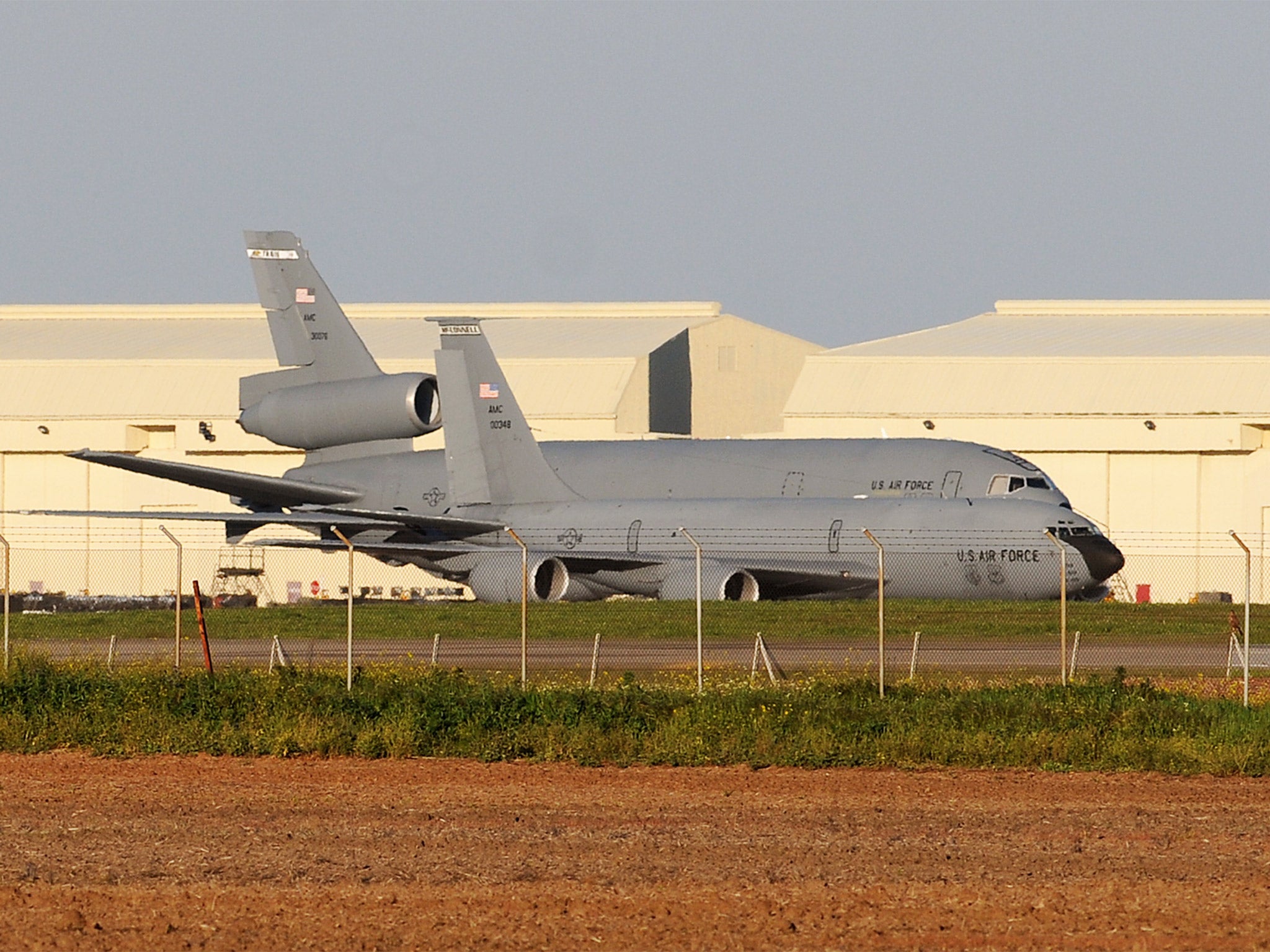US seeks permanent military base in southern Spain to tackle terror threat from north Africa
Madrid agrees to open negotiations as fears of Islamist influence in Libya, Algeria and Morocco increase

The Spanish government is to open negotiations with the US military about converting a base in the south of the country into a permanent centre to tackle the Islamist threat.
There are already about 850 US marines at Morón de la Frontera in Andalusia, but it is expected that, if the plan goes ahead, as many as 3,000 American military personnel could be stationed at the site. The government in Madrid has agreed to open discussions after receiving a request from the outgoing US Defence Secretary, Chuck Hagel, whose team has identified the base as being in an ideal location.
Spain’s Deputy Prime Minister, Soraya Saenz de Santamaría, said Spain’s military relationship with Washington was one of the country’s most important. “Together with our membership of Nato and the EU, [relations with the US] are part of the three basic pillars of our strategic international relations for national defence,” she said.
While Washington believes that Isis operating in Syria and Iraq presents the most immediate threat from jihadis, the US administration has grown increasingly concerned about its influence in other parts of the Muslim world. In north Africa, militants have become emboldened by recent gains, especially in Libya and Algeria.
It was an Islamist attack on the US consulate in Benghazi in September 2012 – when Christopher Stevens, the American ambassador to Libya, was killed – that prompted the American military to deploy 500 members of its Special Purpose Marine Air-Ground Taskforce to Morón; the number has increased steadily since.
As well as maintaining relations with the US, Spain too has an interest in creating a bulwark against terrorism. The attack on Madrid’s Atocha railway station in 2004, which killed 191 people and injured more than 2,000, was carried out by a group linked to al-Qaeda, and Spain has increased its terror threat level in the wake of the recent attacks in Paris.
Spanish intelligence officials are also concerned about the threat to the country from within its two enclaves in Morocco, Ceuta and Melilla. Last weekend, four men suspected of being members of a jihadi network were arrested in Ceuta. The men, Moroccans who also held Spanish citizenship, were found with knives and other combat equipment.
“These are two pairs of very radicalised brothers who are highly trained militarily, physically and mentally, and are prepared to carry out an attack,” said Jorge Fernández Díaz, the Interior Minister.
More generally, Spain is apprehensive about threats made by al-Qaeda in the Maghreb, the group’s north African affiliate, which in the past has threatened to attack Spanish interests. It has also warned of attacks on American installations in Europe, which may lead some to question the wisdom of having such a big American presence in the south of the country.
The talks between Spain and the US over Morón come as European security agencies face greater scrutiny after the attacks in Paris. Today, police in France and Belgium carried out fresh raids against suspected Islamists, arresting eight people.
In southern France, five people were detained during a raid as the Interior Minister, Bernard Cazeneuve, promised a “total mobilisation” against the threat of terror. He said the operation had targeted a group helping to take young people to Syria and Iraq to fight for Isis.
Police in Belgium made three arrests in the west of country and said they had found a cache of weapons. It was not clear whether the two operations were linked.
Join our commenting forum
Join thought-provoking conversations, follow other Independent readers and see their replies
Comments
Bookmark popover
Removed from bookmarks